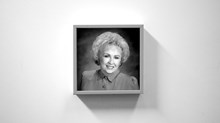Update (July 10): The Lutheran Church-Missouri Synod (LCMS) reelected President Rev. Matthew Harrison at their triennial convention this past week. A strong majority supported Harrison's nomination for a second three-year term, in spite of backlash following his handling of an LCMS pastor's participation in an interdenominational prayer vigil after the Sandy Hook massacre. Harrison later called his actions a "debacle."
-----
Update (Feb. 19): LCMS president Matthew C. Harrison and Newtown pastor Rob Morris have issued a joint statement of unity:
"By the grace of God, we have worked through a very challenging situation. It has been our deepest mutual concern in dealing with one another to be faithful to Christ, our respective vocations, and to each other as brothers. Our dealings have been marked throughout with patience, kindness, and love. We implore the church to do likewise.
We have mutually forgiven each other where we have fallen short.
We are reconciled.
We are at peace."
––-
(RNS) After causing a "debacle" by asking a local reverend to apologize after praying at an interfaith vigil for victims of the Sandy Hook Elementary School massacre in Newtown, Conn., Lutheran Church-Missouri Synod (LCMS) president Matthew Harrison has sparked a media firestorm with charges that the 2.4 million-member denomination was intolerant, insensitive, or both.
Now Harrison's handling of the Newtown service is almost certain to be a factor as he seeks re-election in July when delegates gather in St. Louis for their triennial convention.
The Missouri Synod's constitution prohibits members from taking part in worship services that blend the beliefs and practices of Lutherans with those of other faiths and Christian denominations.
But in 2004 the synod–under Harrison's predecessor Gerald Kieschnick–issued guidelines for participating in public events, including the acknowledgment of "once-in-a-lifetime" situations which "can be evaluated only on a case-by-case basis."
"I did not believe my participation to be an act of joint worship, but one of mercy and care to a community shocked and grieving an unspeakably horrific event," Rob Morris, pastor of Newtown's Christ the King Lutheran Church, explained in his apology. "However, I recognize others in our church consider it to constitute joint worship and I understand why. I apologize where I have caused offense by pushing Christian freedom too far."
This is not the first time an LCMS president has faced pushback for enforcing the constitution. In 2001, a similar moment threatened the administration of Kieschnick, after he allowed a pastor, David Benke, to take part in an interfaith prayer vigil at Yankee Stadium in the weeks after the 9/11 attacks.
Conservative elements in the church called for Kieschnick's removal, and Benke was eventually suspended in June 2002. Benke was later reinstated, but the episode dogged Kieschnick's presidency. He lost re-election in 2010.
In a recent email newsletter, Kieschnick said "the overwhelming majority of people both in and beyond the LCMS who hear the request for apology and/or removal shake their heads in disgust and dismay."
The controversy over the Newtown vigil had flared on the Internet even before the Dec. 16 service as conservative voices within the synod began criticizing him online for planning to participate.
Morris defended himself on the Steadfast Lutherans website, citing the disclaimer "that no clergy member present was endorsing the religions of others, or recanting any portion of their own beliefs, but only offering their love, care, and prayer for their families and communities."
But Timothy Rossow, a pastor from Naperville, Ill., and Steadfast Lutherans' leader, compared the disclaimer to a man whose wife had caught him with a prostitute and who offered her an excuse that "it was OK because before we had sex we each claimed that this had no bearing on any other physical relation that we have, right or wrong, with any other person."
One commenter said Morris' participation in the service "does more harm to the souls of the survivors than any gunman could ever do."
"Does anyone else agree that Pastor Morris' action is more abominable than those committed by the gunman?" the commenter asked.
"Yes I do," Rossow answered in a post that followed. "The gunman killed the body which lasts for 70 or 80 years. … False teaching and practice kills the soul which lives for eternity in heaven or hell."
But some pastors and academics–most of whom did not want to speak publicly–reacted angrily to Harrison's moves against the Connecticut pastor.
"I would hope that this latest action by Harrison would be sufficient to lead LCMS electors to remove him from the office of president and to replace him with someone who is wiser and more evangelical," said the Rev. Matthew Becker, interim pastor at Immanuel Lutheran Church in Michigan City, Indiana.
The Rev. Scott Seidler, pastor of Concordia Lutheran Church in Kirkwood, Missouri, sent a message to his congregation saying that "with thousands of other pastors and church leaders from across our denomination, I find President Harrison's actions to be both outside the bounds of his denominational authority and inconsistent with the example of Jesus Christ himself."
Seidler said that Lutherans "will not soon forget the heavy-handed reproof of a young pastor who interceded for the little children. It is quite possible Matt Harrison is a one-term president."
(Tim Townsend writes for The St. Louis Post-Dispatch.)
Editor's note: CT noted when Harrison received nearly double the votes of his more evangelical-focused opponent, Kieschnick, in 2010, suggesting that the election signaled desire to refocus on denominational distinctives of Lutheran identity.

Support Our Work
Subscribe to CT for less than $4.25/month

















